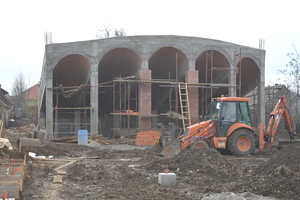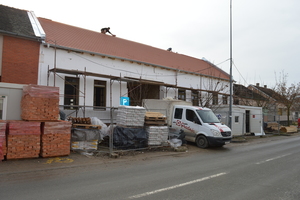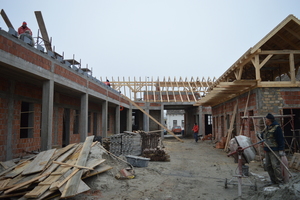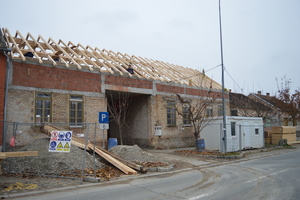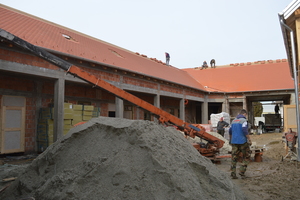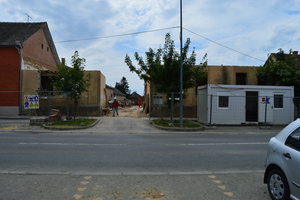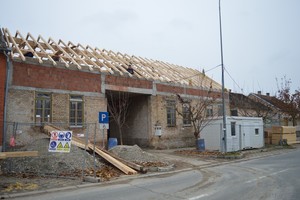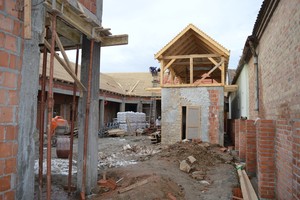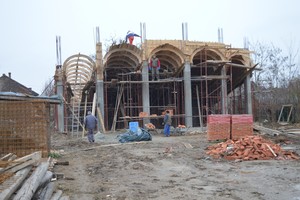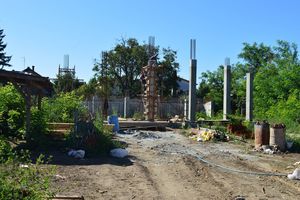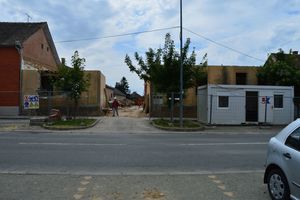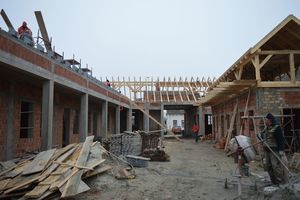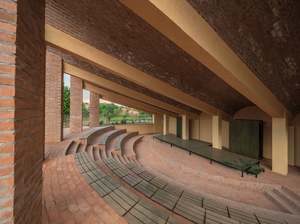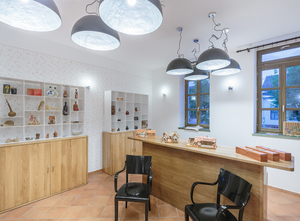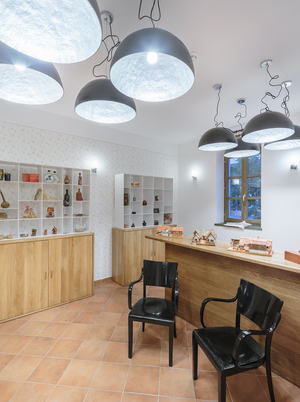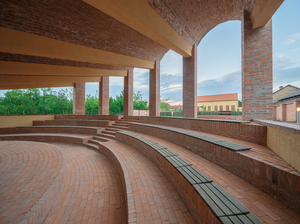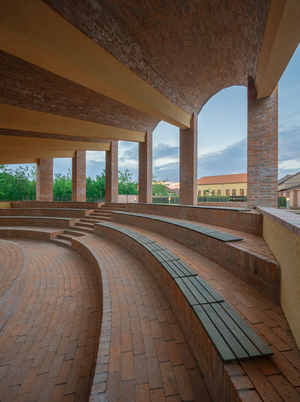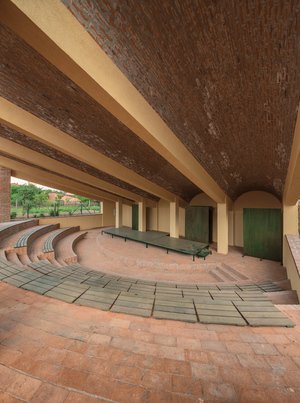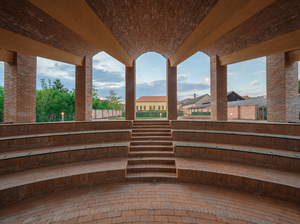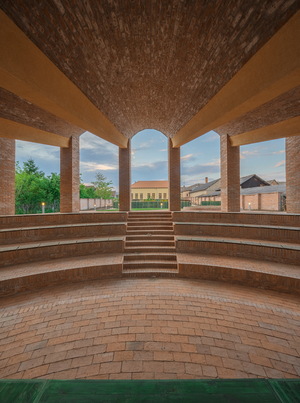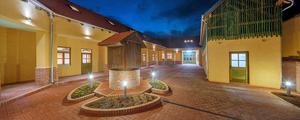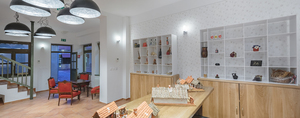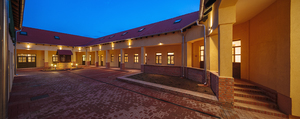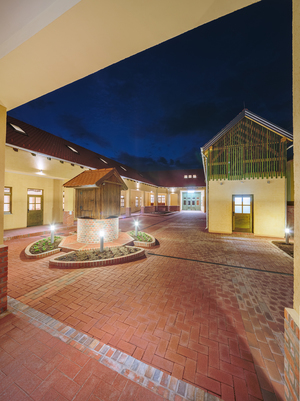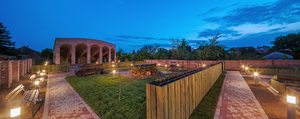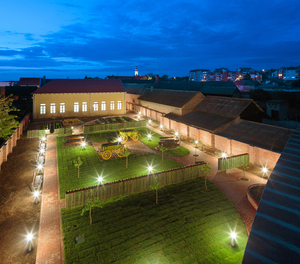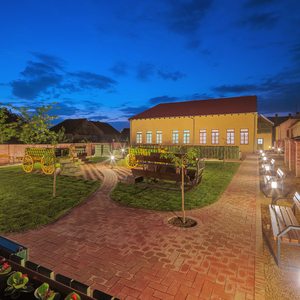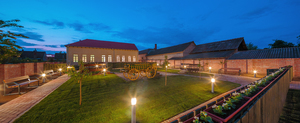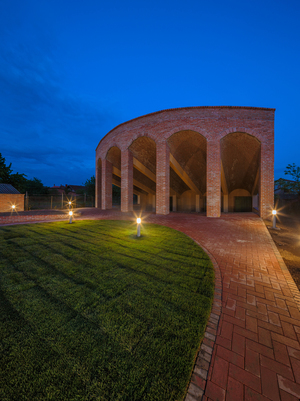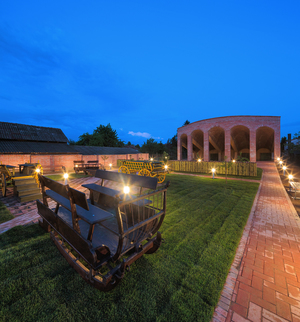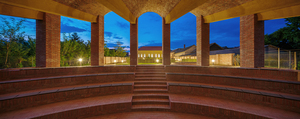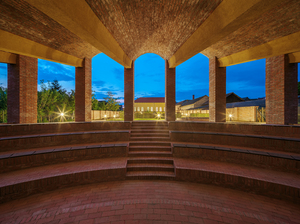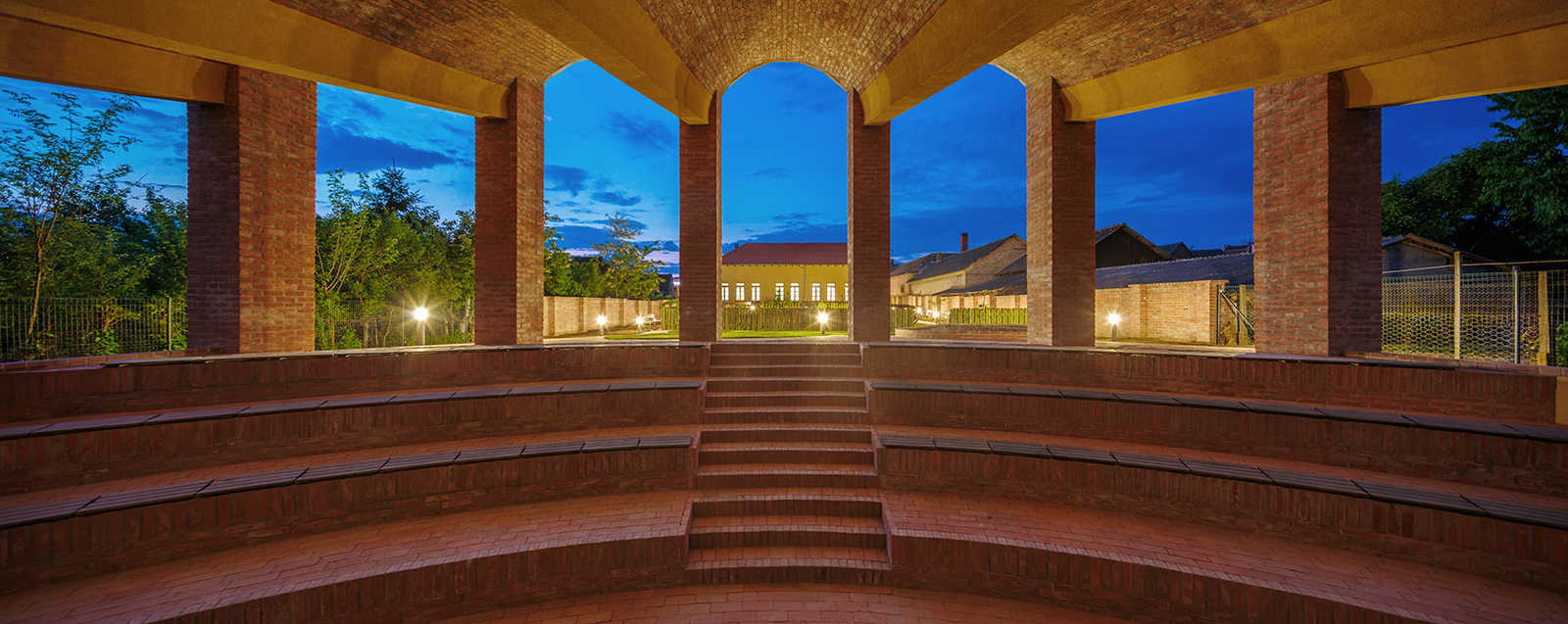
From 1951–1986, the object of the present Ethnology Center functioned as a nursery named "Children's Playground Beli Manastir". After it had been closed and until the restoration of the center, several families lived in it.
The idea of establishing the Ethnology Center was born in 2009., when the association “Croatian Woman” lacked place to display its numerous exhibits. In collaboration with the City of Beli Manastir, Artisan Association of Baranja and Beli Manastir Community Center, the project Ethnology Center of Baranja’s Heritage was created. The Center will represent a permanent residence for all items denoting multicultural heritage of Baranja.
Project has been applied to European funding programmes three times, though it was approved only after the last application in 2014.
The Project Execution Phase will come to an end on May 31st 2016., while in the midmonth, the Center celebrates its official opening.
Fun Fact:
The development of Out-of-Home care for children of preschool age in Baranja begins in 1885. at, what was then, the property of Archduke Friedrich Maria Albrecht Wilhelm Karl of Austria in Kneževo. It was one of the oldest registered kindergartens in Europe. Kindergarten was intended for the children whose mothers were working on the large estate, while funds for equipment and maintenance were given by seigniory. The kindergarden closed its doors in 1991.
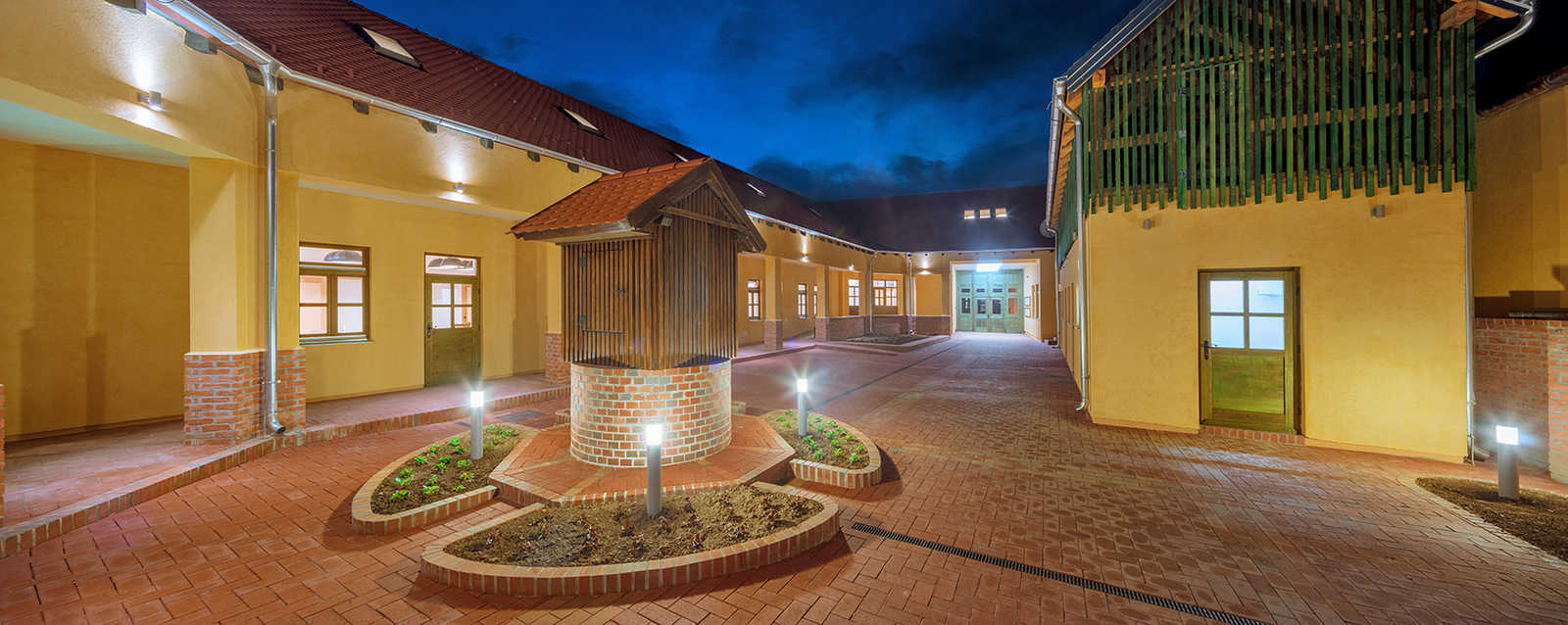
Project Holder: City of Beli Manastir
Project Partner: Tourist Board of Baranja
Project Duration: October 1st 2014 – May 31st 2016
Total Project Value: 8.865.304,65 HRK
Non-refundable Assets from Operational Programme Regional Competitiveness 2007 - 2013, Grant Scheme for Business Infrastructure: 8.545.267.15 City of Beli Manastir: 320.037,50 HRK
About the Project:
By restructuring and adding an appendage to the existing building of Ethnology center, we strived to create additional offer in the industry of cultural tourism which compliments the existing ethno-enological offer in Baranja, as well as to develop a year-round touristic offer through displaying valuable Baranja's ethnological goods in the premises of the Center.
Investment in additional redesign of the outside pavilion and planting of honey plants was made in order to increase the number of visits, while, by putting emphasis on rural characteristics, preserved natural beauty and multi-ethnicity in an area surrounded by two borders - and two rivers Danube and Drava, we try to increase the number of overnight stayings.
Project Objectives:
To renew, upgrade and equip the facility owned by the City of Beli Manastir and to plant honey plants in the related courtyard, as well as to promote tourism by creating Ethnology Center that represents all ethnic groups that have historically inhabited Baranja and, by that, to save their customs and traditions from oblivion.
To enable education in culture for non-governmental organizations specialized in culture, professionals in tourism, local producers of indigenous products and travel providers in order to raise the level of knowledge concerning project management, as well as the levels of service in the tourism industry.
To strengthen the capacities of the Tourist Board of Baranja by additional hiring and education of people concerning the preparation and implementation of EU projects, in order to attract new tourists and increase the number of overnight stayings. Also, to educate employees to conduct tours in the Ethnology center.
Project Stages:
Educations for non-governmental organizations specialized in culture, professionals in tourism, local producers of indigenous products and travel providers
Besides creating of the new touristic offers, it is necessary to develop training modules for tourism professionals, producers of indigenous products and travel providers, in order to raise the existing tourist capacities.The project is implementing the fusion of the existing ethnological goods by staging and projecting the traditional events of the civil society organizations, so the additional training for all participants in the project is required in order to ensure the viability of the project.
Project Audits and Evaluation
For the purpose of impartial and objective monitoring of the implementation of the above mentioned elements and achieving given goals, the external evaluator will prepare three semi-annual evaluation reports and one final report. The external auditor will report to cover the entire implementation of the project.
Award-Winning Exhibitions
Employees
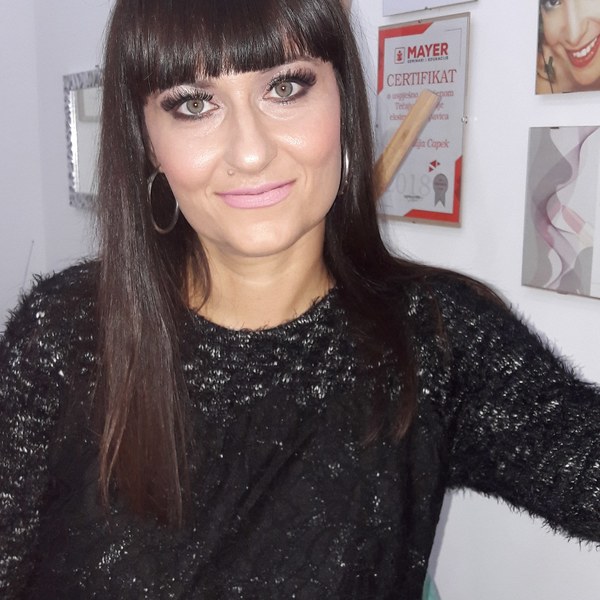 Jasmina Doboš,
Jasmina Doboš,
Info
Kralja Tomislava 70
31300 Beli Manastir
Fax:
E-mail: info@etnobaranja.eu
